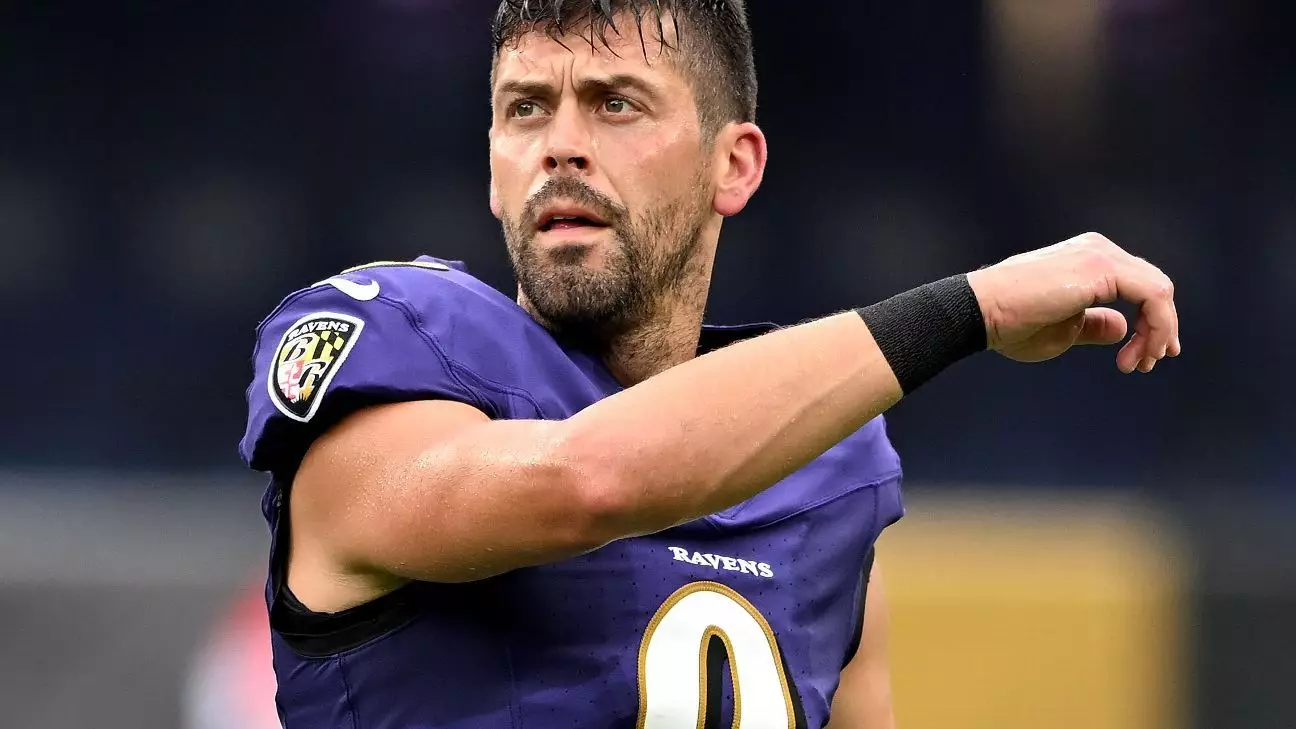The recent announcement of former Baltimore Ravens kicker Justin Tucker’s 10-week suspension for violating the NFL’s personal conduct policy has sent shockwaves throughout the league and beyond. While some may view this as a step toward accountability, the punishment feels insufficient given the gravity of the accusations. Allegations from 16 massage therapists—women who endured alleged sexual misconduct over a four-year span—reflect a pattern of abuse that cannot be minimized by a relatively short-term ban. The NFL’s decision, though symbolically significant, seems more like a public relations move than a genuine stance against sexual misconduct in professional sports.
The fact that Tucker can serve his suspension as a free agent, attend training camp, and participate in preseason games before facing the consequences raises serious questions about the league’s commitment to meaningful discipline. This loophole practically renders the suspension ineffective in terms of immediate accountability. While the NFL has finally acted after a lengthy investigation, the punishment does not align with the profound long-term impact such alleged behavior has had on the victims’ lives. This discrepancy highlights the ongoing struggle within powerful institutions to administer justice that is both fair and truly restorative.
Defending the Victims: A Past Often Ignored
The statements from the victims themselves and their legal representatives shine a stark light on the deep and lasting harm caused by these incidents. One therapist’s remark that “he got 10 weeks, and we have to deal with this the rest of our lives” cuts through any attempts to downplay the consequences of Tucker’s alleged misconduct. Their courage to come forward is a reminder that the sports world often worships its stars to the detriment of overlooking serious character flaws and harmful behavior.
These allegations are not simply about isolated incidents; they represent a systemic failure in holding athletes accountable, especially when victims belong to marginalized or less visible professions like massage therapy. The legal team’s criticism of Tucker’s denial and attacks on the victims’ credibility reveals another layer of the problem—how powerful individuals frequently weaponize their status to silence or discredit those seeking justice. Such responses only deepen the wounds and prolong suffering, revealing an urgent need for cultural change within professional sports and broader society.
Justin Tucker: From Football Icon to Controversial Figure
Justin Tucker’s narrative had been one of near-perfection: the NFL’s most accurate kicker, a seven-time Pro Bowler, and a franchise icon who played for Baltimore for over a decade. His record and reputation made his fall from grace all the more jarring, underscoring the uncomfortable reality that athletic achievement does not excuse or erase personal misconduct. Tucker’s professional decline last season, marked by his lowest field goal percentage ever, parallels his personal and reputational unraveling.
His release by the Ravens, initiated amid the investigation, and the subsequent void left in the team serve as symbolic markers of accountability catching up with him. However, the fact that so many in the league and media preferred to focus on his athletic prowess instead of the allegations against him for years demonstrates the troubling tendency to excuse or overlook wrongdoing in favor of entertainment.
The NFL’s Role: Opportunity or Obligation?
The NFL’s handling of this case exposes a recurring dilemma: balancing the commercial imperatives and star power of players with the ethical demands of enforcing discipline and protecting victims. While the league stands to gain from star athletes and their fanbases, it has a moral obligation to ensure a safe and respectful environment. When it hesitates or offers tepid punishments, it sends a dangerous message that talent can overshadow integrity and accountability.
Accepting Tucker’s suspension as a resolution is complicated by the fact that his denials and attacks on accusers have not contributed to healing or progress. A genuinely progressive approach would require the NFL to institute clearer, stronger mechanisms to prevent sexual misconduct and to support victims without fear of reprisal. More importantly, the league and teams must prioritize character and respect over mere on-field performance.
In no way should athletes’ off-field actions be considered secondary to their sports accomplishments. This case should serve as a wake-up call—not just for the NFL but for all professional sports entities—to redefine success beyond statistics and trophies. It should prioritize human dignity, equity, and justice, especially when allegations touch upon such serious violations of trust and safety.


Leave a Reply